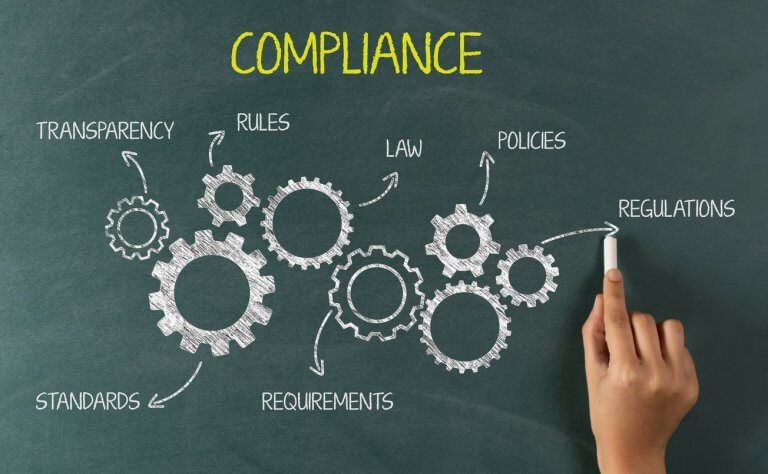Blog

Changes to tax compliance requirements and legislation happen frequently at the state and IRS levels. In order to provide customers with the updated and accurate information they need, Sovos documents each of these changes in its Compass portal. Here are some notable changes in 1099 reporting from this week. IRS Releases 2018 Draft Form 1098-T, […]

Why the First Year of CRS Reporting Isn’t Really Over Yet Don’t break up your Automatic Exchange of Information (AEOI) team just yet. The first round of reporting under the Common Reporting Standard (CRS) might be over, but jurisdictions themselves will soon begin exchanging information using the Common Transmission System (CTS). For financial institutions (FIs), […]

Norway’s government planned to officially require SAF-T reporting beginning in January 2017, but pushed the deadline back to 2018 as it finalizes details. With the 2018 deadline looming, companies need to start implementing their Norway SAF-T compliance solution now, or risk fines, penalties and business disruptions. SAF-T mandates have already been implemented in several EU […]

In 2016, China’s Business Tax to VAT reform legally enabled many consumer-facing industries to issue electronic normal VAT invoices (not eligible for input VAT claim) to their customers. Since this tax reform, the past year has seen China make an increased effort to focus on the electronic normal VAT invoice (not eligible for input VAT […]
The VAT Gap in the EU was estimated to be €159.5 billion in 2014, and the enormity of that gap is one of the reasons why the global tax landscape is changing so dramatically. Sovos explained this development to attendees of the FD Exchange conference, which took place in the Steigenberger Airport Hotel in Amsterdam. […]

The changes in state tax reporting thus far in 2017 reflect much of what we learned in 2016: State governments want more information, and they want it sooner than before. Some examples of this phenomenon can be found in states such as Iowa, Maryland, Oklahoma, and Connecticut. Iowa now requires both W-2 and 1099 reporting […]

The employer mandate could be repealed if Senate Republicans push through their newest attempt to repeal and replace the Affordable Care Act, but it appears as though ACA reporting requirements under IRC 6055 and 6056 would remain intact. Republicans introduced the Graham-Cassidy Plan in recent weeks. The Senate has until September 30 to pass the […]

Overview: Sovos AEOI Event in New York City Sovos recently hosted its AEOI Global Compliance Series event in New York with an event focused on Automatic Exchange of Information (AEOI) reporting. Speakers for the event included Jennifer Sponzilli from KPMG, Darren Rykers from Ernst & Young, Chris Orchard from Hansuke and Lanu Chou from Pricewaterhouse […]
What began as an e-invoicing mandate in Brazil just over 10 years ago has significantly transformed the way businesses operate – not just in Latin America, but across the globe. Governments are progressively turning to technology to close tax gaps, crack down on tax evasion and gain visibility into transactions that happen within – and […]

Note: This blog was updated on September 3, 2021. According to the Treasury Department’s American Families Plan Tax Compliance Agenda, the most recent assessment of the gross tax gap for tax year 2019 is approximately $580 billion. Recently, Treasury Deputy Assistant Secretary Mark Mazur testified before Congress that the projected tax gap could balloon to […]

Note: This article on 1099 B and P notices was updated on September 14, 2021. Sovos recently held a webinar on best practices for dealing with “B” Backup Withholding and “P” Penalty notices related to name and taxpayer identification number mismatch errors in 1099 reporting. Here, Sovos regulatory experts answer questions from webinar viewers on IRS B […]

Two years ago, a small number of forward-looking enterprises issued RFPs requesting ‘end-to-end invoice compliance automation services’. These RFPs requested all VAT-related compliance decisions to be managed through a single SaaS platform which integrated with the requesting company’s invoicing engine. In this article, we’re exploring the background and implications of this apparent evolution in market […]

Despite multiple repeal attempts, the Affordable Care Act (ACA) is alive and well. Employers still have to report ACA information or face increasing penalties. With ACA reporting still on HR professionals’ agenda, Sovos regulatory experts answer selected questions posed by viewers during a recent Society of Human Resources Management (SHRM) webinar. Their answers are here, […]

Keep current with VAT news without having to sift through the news every day. Here are the most significant happenings in the world of VAT reporting from August: International News OECD: OECD Publishes Comments on Model Tax Convention On August 11, the Organisation for Economic Co-operation and Development published comments to its newly-released 2017 Model […]

Anyone who travels for work knows the pain of sorting through weeks’ or months’ worth of receipts and completing clumsy spreadsheets. If you work in a company’s financial administration and are on the receiving end of these messy expense reports, you’re not much better off. It should not be a surprise that the market for […]
After 8 years of voluntary e-invoicing, Costa Rica has begun its transition to mandatory e-invoice submissions. The first 10 companies began compliance in March 2017 as a pilot, and the DGT, Costa Rica’s tax authority, will continue to roll the program out to additional enterprises over the next two years via email notifications. Like other […]